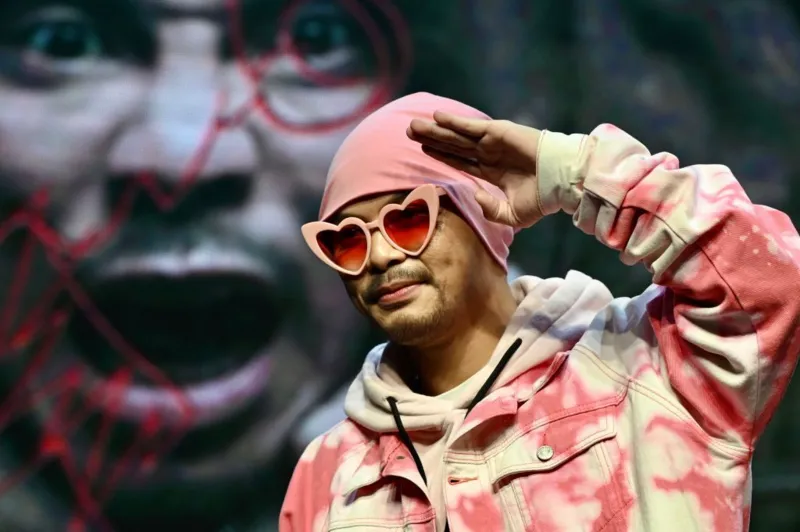Popular Malaysian rapper charged with drug use


Popular Malaysian rapper Namewee has been charged with illegal drug use and possession, local media reported on Monday, quoting Kuala Lumpur police.
Namewee, who pleaded not guilty to both charges, has been released on bail after being arrested last month, authorities said.
The 42-year-old is known for his satirical songs and music videos about taboo topics in Malaysia, from obscenity to religion to China’s censorship.
In an Instagram post on Sunday, Namewee denied using or carrying drugs.
“The truth will be out when the police report is released,” he wrote.
Kuala Lumpur police chief Fadil Marsus said that Namewee was arrested on 22 October in a hotel room, where they found pills believed to be ecstasy – also known as MDMA.
Namewee later tested positive for illicit substances – including amphetamines, methamphetamine, ketamine, and THC – and was remanded for two days, Fadil said in a statement.
If convicted of drug possession, he could be jailed up to five years and caned.
A police official told local media that Namewee had been in the same hotel at the same time as Iris Hsieh, a Taiwanese influencer who was found dead in her hotel room bathtub.
Namewee wrote on Instagram that he felt “deeply sorry” about Hsieh’s death. The ambulance had taken “nearly an hour” to arrive at the scene, he wrote.
He said that he had remained silent as the case was under investigation – though it’s unclear if he’s referring to his drug charges or Hsieh’s death.
He also claimed that he has received “blackmail” in recent days but would “fight to the end”.
Namewee has long courted controversy with his music.
In 2016 he was arrested in Malaysia for his music video Oh My God, which was filmed at various places of worship around the country. Critics said the song insulted religious sensitivities.
In 2021, he released the song Fragile, which poked fun at Chinese nationalists and touched on politically sensitive topics like the sovereignty of Taiwan and the persecution of Uyghurs in Xinjiang. The song went viral for Mandarin-speaking audiences but was banned by China.
DISCLAIMER: The Views, Comments, Opinions, Contributions and Statements made by Readers and Contributors on this platform do not necessarily represent the views or policy of Multimedia Group Limited.
DISCLAIMER: The Views, Comments, Opinions, Contributions and Statements made by Readers and Contributors on this platform do not necessarily represent the views or policy of Multimedia Group Limited.
Source link





